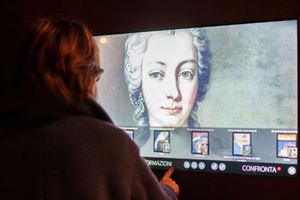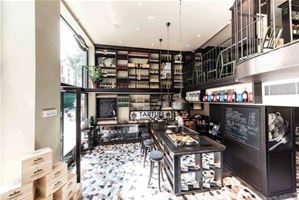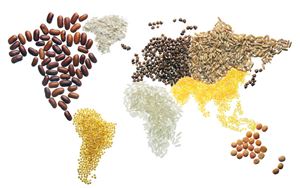One does not often meet a Mud Angel, the many foreign students and Italians who came to Florence to help dig out the city, as well as salvage books, manuscripts and works of art, after Florence’s devastating flood of November 1966. Although some still live here, most are scattered across the world. There is no organization or online community. So you can imagine my delight when I learned that Sylvia Behrman first arrived in Florence in 1966. ‘So, you’re a Mud Angel?’ I immediately asked.
‘Yes,’ she responded with a smile. ‘I had just finished at the University of Sussex in England, with a degree in English, and I thought I ought to learn another language. I had always loved Italy, and my parents did, too. So, I came to Florence and enrolled at the University of Florence to study Italian. A few months after I got here, the flood came.’ At the time, Behrman was living on Costa dei Magnoli, sharing a flat with another English girl. The two witnessed the entire ordeal from their windows, but luckily the waters did not reach their house, which was further up the road.
Behrman says her most vivid memories of the flood were from her first walk around the city days later. ‘The first thing I remember was the silence. The total silence. Another thing was seeing a VW Beetle completely flattened out against the Santa Trinita bridge. And the water: it was still flowing so fast in the river and was so forceful. Apparently, it had washed right over the Ponte Vecchio and the jewellery shops; a lot of people thought it would fall down, but it didn’t. I think there might still be lots of gold at the bottom of the river!’
The post-flood period wasn’t easy to live through, either. All British nationals were advised to get typhoid shots to avoid an epidemic. Behrman remembers standing in line at the British Consulate, waiting for the shots alongside other British Mud Angels and residents. She helped dig out books and manuscripts at the Biblioteca Nazionale, where ‘things were a terrible mess. There was mud all over the place; you could hardly even get inside the library! Even today, there is still an awful lot to be done. Lots of books still need restoration, while many of the priceless manuscripts were lost forever.’
In their apartment, she and her roommate had to adapt quickly to difficult conditions, such as living without running water for months: ‘Electricity came back after 24 hours, but we didn’t get running water until about Christmas time. Every day the army would come with big tanks of water and we’d go down to fill up containers and use that water for drinking, cooking and the washing up. But it wasn’t enough to do any laundry. It was quite surreal, really, when I think back on it.’
Things eventually returned to normal, and by that time, Behrman had finished studying and was starting to look for work. Despite it all, she still wanted to stay in Florence. She found her first job with an American couple who had a buying office in the city. ‘Those were the days when everybody was coming to Italy to buy; practically every single product came out of Italy. The couple sold hand knits and knitwear, and eventually left. But I stayed. I then found an office job with another buyer.’ After working several jobs in the same sector, she met the man who became her husband, an American who had a buying office selling men’s giftware in New York: ‘He eventually decided to come to live in Italy with me. He loved Florence, too,’ she explains.
In Florence, they joined forces and set up their own export business, providing Made in Italy products to America and other Anglo countries. It was quite successful, she explains, until ‘the end of the 1980s and beginning of the 1990s, when the bottom started to go out of the market; the Chinese came in and people started buying through the Internet and so forth. So, we closed things down and moved to the countryside.’ Behrman lost her husband two years ago, but she has kept busy doing social work, and last year she was nominated president of the American International League of Florence (AILO): ‘a wonderful community service and association. Not only do we do great work like our annual Christmas Bazaar, which raises funds for charities, but we also have craft sales, and organise cultural visits and social events for our members,’ she notes, proudly.
One of AILO’s major annual events is the Christmas Bazaar, towards which members work all year. ‘Every year, proceeds are donated to several charities. We don’t want to raise money for just one charity; we want to help many. For example, this year we are donating to 10 charities. We raise about 50,000 euro on average a year, which is great. AILO members vote on which charities get our donations that specific year, with the only exception that we don’t give money to the same charities two years running.’
The charities vary, and awardees have included the local women’s crisis centre Artemisia to Lega Italiana per la Lotta Contro i Tumori—even associations giving shelter and medical attention to cats and dogs. The proceeds raised support special projects, and the charities must provide a report to AILO on the expenditure of the funds. Each year the donations are presented at a special ceremony in Palazzo Vecchio.
Recently, AILO received the Marzocco of Florence Award from the City of Florence in recognition of its community service and social work. But there’s more to the league than fund-raising. It is also a formidable social and support network for its some 170 members. AILO members come from across Tuscany, from Livorno to the Chianti area, and they meet once a month to enjoy a dinner together, sew for the bazaar, take museum tours, and do social work and fund-raising. Being an AILO member is also like being part of a family, Behrman says: ‘Another very important part of AILO is that we take care of each other. If a member needs to go to hospital or needs help with something, the other members step in. Many people who come to Florence, whether alone or with someone, have joined AILO because they seek a support network. I think this is an important part of the league. Many of us have been here for years and years. Many are married to Italians, others are people like me, who just like it here.’
‘Do you still like it here? Can you say that you are here to stay?’ I ask her.
‘Oh, yes. I still do love it here, even though it can be very irritating at times! I have a support system, and lots of friends. And it’s not that far from England; all you have to do is jump on a plane at Peretola.’
It is safe to say that Sylvia Behrman, the Mud Angel who stayed, is now more Florentine than British. More than 40 years have passed since she first stepped foot in the city, and she has no intention of leaving. Florence is her home.







